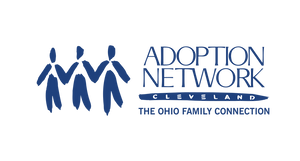
In today’s age of having everything at a click of a button, there are many items to consider when debating registering at an adoption reunion registry. This blog aims to help inform readers of a new unnecessary twist as well as costs and risks, both emotional and financial, and ways to protect all involved. When starting an adoption search process, the adoptee or birth family members have an almost overwhelming amount of choices to make or paths to take. Those searching want nothing more than to have a reunion, and with emotions running high, may be vulnerable to spending money that may not be necessary or productive.
Adoption reunion registries have been around for many years. Adoption Network Cleveland Founder and Executive Director Betsie Norris explains that various states have had their own attempts or versions over time. The vast majority of these have been largely ineffective and overly complicated. The law that opened adoption records in Ohio in 2015, allowing adoptees access to original birth certificates, dismantled the state’s elaborate, costly and inadequate registry. If you are searching in a closed record state, determine if that state has a registry, but understand that historically these have not been shown to be useful.
Multiple reunion registry options exist online, both for profit and nonprofit. The increased use of direct to consumer DNA testing is leading to immense databases at major testing sites, and this is making the use of adoption registries obsolete. In evaluating what is best for your search, here are some considerations to help you weigh the options:
· How you search and the steps you take during that search have the possibility of impacting your reunion. Taking steps to safeguard the private details of the person you are searching for may be appreciated when they ask how you found them. They may have legitimate concerns about their private, personal details made available on the internet.
· The person you are searching for may not be search minded, but may be willing to be found.
· Over the decades there have been many different adoption registries with no one consolidated place to go to determine a match, so it is entirely possible that an adoptee may register on one site and a birthparent may register on another, both feeling that they have done all they can but a connection is never made.
· If you register on a site where you can see private, personal details about others, remember that anyone on the internet can see all the same details that you provide about yourself and the person you are searching for. This can leave you vulnerable. For instance, we have worked with a birthmother who registered on a site like this and she was contacted by a man stating that he was her birth son, confirming his date of birth, place of birth, etc. She was overjoyed, and began a relationship with him, and then was heartbroken when she learned that he was not who he claimed to be. To protect yourself from situations like this, you may choose not to include every detail that you know in your listing, leaving a small detail held private to be confirmed by the person you are searching for. Also, DNA testing is strongly recommended to verify the connection before you proceed with a relationship.
· Registries that protect the information of everyone who registers, determine if there are possible matches and then provide you with the possibilities, allow better privacy protection for yourself and the person that you are searching for. One nonprofit site that meets these considerations is www.isrr.org. Again, DNA testing is easy, relatively inexpensive and recommended to confirm the relationship.
· We have seen the results of an adoptee’s registration on one common reunion registry. These results claimed a “100% probable match” to 4 people for an adoptee searching for his birthmother. The only thing these people had in common was year of birth and state of birth (regardless of date of birth, gender, etc.). The statement of “100% probable match” or a “10/10” when the details were in fact sketchy at best and would need much more confirmation. This was misleading and left the adoptee with the feeling that one of these people would certainly be his birthmother. When this search was completed and the birthmother was confirmed, she, in fact, had never registered on any adoption registries.
· One of these adoption reunion registries is now accepting DNA uploads and charging a monthly or yearly fee for matching. This is absolutely unnecessary and may even be viewed as an opportunistic ploy. If you have followed the recommended testing path by testing at Ancestry, 23 and Me and then uploading for free to My Heritage, FTDNA and Gedmatch, there is no need to upload your DNA to a third party adoption reunion registry matching site. If someone is searching, they will already be at one of the recognized sites mentioned above.
Advancements in technology combined with increased sizes in the databases of Ancestry, 23 and Me, My Heritage and FTDNA make this a preferred option for those searching for their birth family. Many adoptees complete DNA testing to find out more about their ethnicity or genetic health risks. Adoption reunion registries may not be an effective option in an adoption search, and if you are considering the most cost-effective methods, we have found DNA testing to be much more productive.
For Search and DNA Assistance information, please click here.

